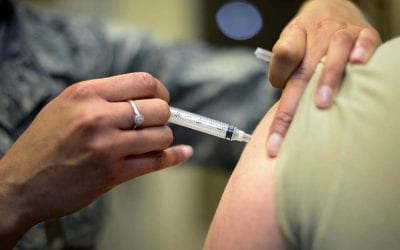I recently reported on the multi-million dollar effort of US Airways to restore the personal effects of the passengers of the ‘so-called’ Miracle on the Hudson. I got some criticism for comparing the huge outlay of cash and concern to the often surly attention I have received when I had to go to the desk and report that my own belongings had gone missing.
Now comes word that even the passengers who were reunited with their waterlogged possessions might be having second thoughts about US Airways’ commitment to their peace of mind. Seems when they applied to the airline for compensation for counseling and other support they sought to deal with their own personal aftermath of the accident, they were told “sorry.”
Apparently US Airways, who hired the best restoration service money can buy to rejuvenate the sodden flotsam, thinks passengers that ended up taking a dive into the murky depths of the Hudson are on their own when it comes to restoring their damaged psyches. One family that applied for reimbursement for counseling was told that airline would only pay for three sessions. The family feels they need more than that, especially as one of their members is a four-year-old.
According to experts, it’s true that US Airways has complied with the statutory requirements involved in this air crash. (Because the plane went down due to a bird strike, there was no negligence or other malfunction that would invoke liability). But some, including this columnist, wonder – should that be enough?
I think US Airways already set the bar extraordinarily high when they went beyond what was required in terms of fishing luggage out of the river and steam-cleaning, dry-cleaning and preserving it. I’m sure many folks that got their freeze-dried boarding passes back would rather have that missing piece of calm and self-control they’ll need next time they board a plane.
And let’s not overlook the other issue involved here. US Airways got tremendous PR mileage out of the baggage rescue effort- just about every major media outlet in the country carried coverage of the event. If Sully’s landing was a miracle, surely the retrieval and revival of passengers’ personal effects was almost enough for canonization. One passenger gleefully reported that she had already worn her favorite pair of jeans since they had been returned to her.
But in reality, what did most of them get? Clothes that, although completely refreshed, had shrunk to two sizes too small, hard drives that were ‘clean’ in more than one sense of the word, credit cards since replaced and keys they no longer needed. (US Airways had locksmiths meet passengers trying to get into their homes whose keys had been lost).
In fact, replacing lost keys is just one example of what US Airways did right – they also scrambled, in the hours and days after the event, to replace needed IDs, medicines, phones and computers. So given the early signs that maybe US Airways “Care Team’ really did care, was it too much of a stretch to think they might be there when the glare of the cameras went away and passengers were left with only cold dark memories?
Hopefully you will never be involved in an air crash. Post-traumatic stress, sleeplessness, panic attacks, depression, and anxiety are all possible consequences of having a flight anticipated to be mundane go terribly wrong. I don’t know about you, but if it were me, I’d forgo getting back my undies and four year old hairdryer in favor of getting a good night’s rest and some psychological healing.
What do you think?

